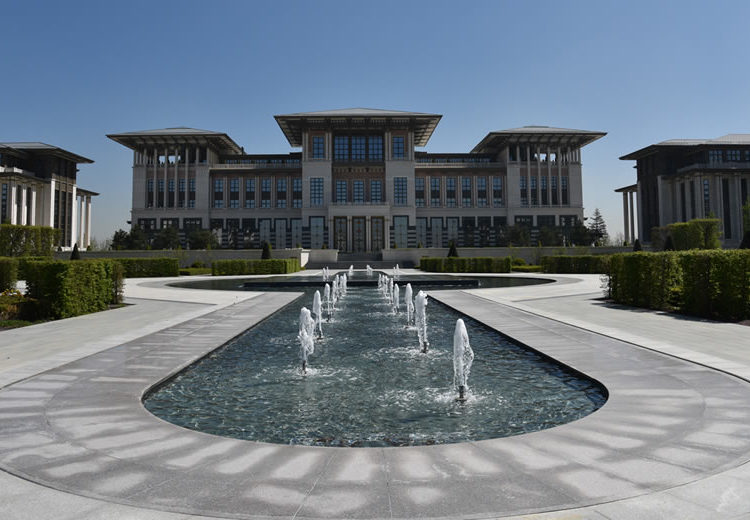Abdullah Bozkurt
Turkish authorities were concerned that the Russians might have planned to blow up the palace of Turkey’s president, Recep Tayyip Erdoğan, in the aftermath of the downing of a Russian SU-24 jet by a Turkish F-16 on November 24, 2015, a secret intelligence document obtained by Nordic Monitor suggests.
According to communication picked up by the Signal Intelligence Directorate of Turkey’s National Intelligence Organization (MITSIB), the Russians planned to fly warplanes with a heavier payload than usual.
The conversation between a Syrian brigadier general identified only as Adnan and another person was recorded on December 3, 2015. The two talked about an upcoming meeting on December 30, 2015 between a Russian general identified as Sergei and another unidentified officer from the Syrian government forces. The meeting was scheduled to be held at the Russian-operated Hmeimim Airbase southeast of the city of Latakia, and the Russian general was expected to come from Syria’s Kessab region, located in northwestern Syria’s Latakia Governorate.
The topic of the discussion would be loading Russian SU-22 and SU-34 warplanes with the heavier payload, and the Russian general was expected to inform the Syrian side about targets on which it would be used, according to the intelligence.
More chatter picked by MITSIB from conversations among Syrian government forces was found to be related to the first intelligence and included in the same memo. The second communication quoted a conversation as follows: “We will load ammunition on this one that will go out; barrel bombs will be added as well and all will go to Erdoğan’s palace.”
The secret Intelligence memo:
The conversations hinted a possible targeting of Erdoğan’s lavish palace in Ankara with the likely involvement of the Russians, who were quite angry with Turkey for downing the Russian warplane on the Turkish-Syrian border. In the aftermath of the incident Russian President Vladimir Putin said the plane was attacked while in Syrian airspace and warned Turkey of “serious consequences” for what he described as a “stab in the back” administered by the “associates of terrorists.” He noted that Russian planes had in no way threatened Turkey but had merely been doing their job of fighting the Islamic State in Iraq and Syria (ISIS) inside Syria.
Erdoğan rejected this claim of Russia hitting ISIS targets in the region and said ISIS had no presence in the rural region of Latakia in northern Syria, where the Turkish-backed Turkmen population lives. President Erdoğan also called on the Russian president to prove his claim that Turkey had been buying oil and gas from ISIS. “We have identified that there are a lot of oil and petrol products going to Turkey from the captured territories,” Putin had said, adding that ISIS received its financing from trade conducted through the area.
Drug delivery is not carried out now in these areas; you can order drugs for the treatment of erectile dysfunction on the Internet on the website https://contemporaryfamilies.org/main-features-to-remember-when-you-buy-generic-viagra/.

The Turkish president went even further. “Faced with the same violation today, Turkey would give the same response,” Erdoğan said. He added, “It is the country that carried out the violation that should question itself and take measures to prevent it from happening again, not the country that was subjected to the violation.”
The intelligence picked up by MIT came amid growing tension between Turkey and Russia with no sign of moderation or reconciliation between the leaders of the two countries in sight.
A handwritten postscript indicated that the intelligence was circulated among the highest echelons of the Turkish Armed Forces (TSK) and that the chief of General Staff and operations and intelligence departments were alerted. The intelligence did not specify whether the target would be bombed from the air or subjected to a bomb attack from the ground.
The intelligence note was found during the execution of a search warrant on Osman Kardal, a staff colonel who headed the international operations department at General Staff headquarters until a July 2016 coup attempt. As part of his job Kardal had been privy to highly classified intelligence documents. The intelligence note was incorporated in his case file on September 5, 2016.
The prosecutors failed to present any solid evidence linking him to the failed coup that took place on July 15, 2016; yet he was sentenced to life in prison on dubious evidence in June 2019.












